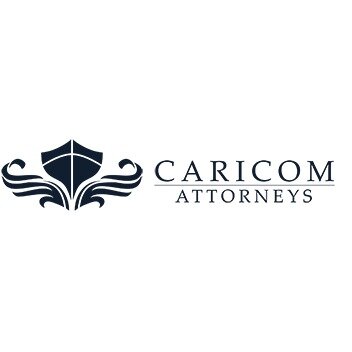Best Private Equity Lawyers in Grenada
Share your needs with us, get contacted by law firms.
Free. Takes 2 min.
Or refine your search by selecting a city:
List of the best lawyers in Grenada
About Private Equity Law in Grenada
Private Equity (PE) involves investments made in private companies or the privatization of public companies with the intent to improve profitability and eventually sell at a higher value. In Grenada, the private equity sector is emerging, driven by growing interest from both local and foreign investors. The jurisdiction offers attractive investment avenues, such as tourism, real estate, and agriculture. However, the legal environment around private equity can be complex due to regulatory requirements, due diligence processes, and the need for clear contractual agreements. Private equity transactions in Grenada need to comply with national laws governing company registration, capital markets, foreign investment, and taxation.
Why You May Need a Lawyer
Engaging in private equity investments is often complicated and can present various legal challenges. A qualified lawyer specializing in private equity can assist in the following situations:
- Structuring private equity deals to align with Grenadian regulations
- Drafting and negotiating investment agreements, shareholder agreements, and exit strategies
- Conducting thorough due diligence to assess risks and liabilities
- Navigating regulatory approvals and compliance with the Grenada Investment Act and Companies Act
- Advising on tax implications and structuring for financial efficiency
- Resolving disputes between investors or partners
- Ensuring proper documentation for mergers, acquisitions, or buyouts
- Guiding foreign investors through local rules and restrictions
Legal advice is essential to safeguard your investment, prevent costly errors, and optimize returns in Grenada's private equity market.
Local Laws Overview
Key legal aspects relevant to private equity in Grenada include:
- The Companies Act governs the formation and operation of corporations. It outlines requirements for company registration, director responsibilities, shares, and reporting.
- The Grenada Investment Promotion Act encourages foreign investment through incentives but also imposes certain sectoral restrictions.
- Financial sector regulations are primarily overseen by the Grenada Authority for the Regulation of Financial Institutions (GARFIN).
- Anti-Money Laundering (AML) and Know Your Customer (KYC) regulations apply to all investment activities, ensuring transparency and legality of funds.
- Taxation is governed by the Grenada Inland Revenue Department. Investors must be aware of corporate tax rates, withholding taxes, and other levies.
- Employment laws may affect company operations post-acquisition, particularly in restructuring situations.
- Contract law follows the principles of English common law, with local statutes complementing these principles.
Navigating these laws requires careful planning and interpretation, which is why seeking legal guidance is highly advisable for all private equity transactions in Grenada.
Frequently Asked Questions
What is private equity?
Private equity refers to capital investment in companies that are not publicly traded on a stock exchange. These investments are usually made by private equity firms, investors, or funds aiming to help companies grow and eventually realize a return on investment through a sale or public offering.
Can foreign investors participate in private equity in Grenada?
Yes, Grenada welcomes foreign investment. However, foreign investors must comply with certain regulations under the Grenada Investment Promotion Act and may require approval from relevant authorities for certain sectors.
What are the main legal risks in private equity transactions?
Legal risks include non-compliance with regulatory requirements, unclear or poorly drafted agreements, insufficient due diligence, potential tax liabilities, and potential disputes with partners or authorities.
What is due diligence in private equity?
Due diligence involves a thorough investigation of a target company's financial, legal, and operational aspects. This step helps investors assess risks, liabilities, and opportunities before finalizing an investment.
How is a private equity investment typically structured in Grenada?
Investments are commonly structured via the acquisition of equity shares in private companies. Legal documents such as shareholder agreements, subscription agreements, and management contracts are drafted to outline the terms and conditions.
Are there any restrictions on sectors for private equity investment?
Some sectors in Grenada may have restrictions or special requirements for foreign investors, such as utilities, telecommunications, and national security interests. A lawyer can guide you on sector-specific regulations.
Which authority regulates private equity transactions in Grenada?
The main oversight comes from the Grenada Authority for the Regulation of Financial Institutions (GARFIN), alongside other agencies like the Corporate Affairs and Intellectual Property Office (CAIPO).
What taxes apply to private equity investments in Grenada?
Taxation may include corporate income tax, capital gains tax, and, in some cases, withholding tax on dividends. There may be incentives and exemptions, especially for qualifying foreign investments.
Do I need a lawyer to invest in private equity?
While it is not legally required, it is highly recommended to retain a lawyer to navigate the legal complexities, ensure compliance, and safeguard your investment interests.
What steps are involved in closing a private equity deal?
The process typically includes negotiating terms, conducting due diligence, drafting legal documents, securing regulatory approvals, arranging for funding or capital injection, and finalizing the transaction through legal closure.
Additional Resources
For those seeking more information or support regarding private equity in Grenada, consider the following resources:
- Grenada Authority for the Regulation of Financial Institutions (GARFIN)
- Grenada Investment Development Corporation (GIDC)
- Corporate Affairs and Intellectual Property Office (CAIPO)
- Grenada Inland Revenue Department
- Local law firms specializing in commercial and corporate law
- Chamber of Industry and Commerce
Next Steps
If you are considering private equity investment or are currently involved in a private equity transaction in Grenada, follow these steps to protect your interests:
- Outline your investment objectives and determine the type of entities or sectors of interest.
- Consult with a qualified lawyer who specializes in corporate and private equity law in Grenada.
- Request an initial assessment to identify legal risks and regulatory requirements.
- Ensure all necessary due diligence is performed before making commitments.
- Work closely with your legal adviser to draft and review all contractual documents.
- Stay informed about changes in local laws and regulations related to private equity.
- Contact local regulatory authorities or business development organizations for guidance and support.
Taking proactive legal steps will help you make informed decisions, minimize risks, and achieve successful outcomes in private equity in Grenada.
Lawzana helps you find the best lawyers and law firms in Grenada through a curated and pre-screened list of qualified legal professionals. Our platform offers rankings and detailed profiles of attorneys and law firms, allowing you to compare based on practice areas, including Private Equity, experience, and client feedback.
Each profile includes a description of the firm's areas of practice, client reviews, team members and partners, year of establishment, spoken languages, office locations, contact information, social media presence, and any published articles or resources. Most firms on our platform speak English and are experienced in both local and international legal matters.
Get a quote from top-rated law firms in Grenada — quickly, securely, and without unnecessary hassle.
Disclaimer:
The information provided on this page is for general informational purposes only and does not constitute legal advice. While we strive to ensure the accuracy and relevance of the content, legal information may change over time, and interpretations of the law can vary. You should always consult with a qualified legal professional for advice specific to your situation.
We disclaim all liability for actions taken or not taken based on the content of this page. If you believe any information is incorrect or outdated, please contact us, and we will review and update it where appropriate.
Browse private equity law firms by city in Grenada
Refine your search by selecting a city.













